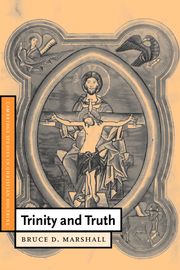Book contents
- Frontmatter
- Contents
- Preface
- A note on translations
- 1 Introduction: theology and truth
- 2 The triune God as the center of Christian belief
- 3 Epistemic justification in modern theology
- 4 Problems about justification
- 5 The epistemic primacy of belief in the Trinity
- 6 Epistemic priorities and alien claims
- 7 The epistemic role of the Spirit
- 8 The concept of truth
- 9 Trinity, truth, and belief
- Index
4 - Problems about justification
Published online by Cambridge University Press: 23 December 2009
- Frontmatter
- Contents
- Preface
- A note on translations
- 1 Introduction: theology and truth
- 2 The triune God as the center of Christian belief
- 3 Epistemic justification in modern theology
- 4 Problems about justification
- 5 The epistemic primacy of belief in the Trinity
- 6 Epistemic priorities and alien claims
- 7 The epistemic role of the Spirit
- 8 The concept of truth
- 9 Trinity, truth, and belief
- Index
Summary
Theological attempts to justify Christian beliefs by appealing to inner experience, foundations, or epistemic dependence all face daunting problems. The arguments which suggest these difficulties are in part philosophical, both in the obvious sense that they have been proposed mainly by philosophers, and in the more important sense that they trade on assumptions which one does not have to hold distinctively Christian beliefs to accept.
The logical links between these three theses are loose enough that it would be possible to accept any one of them without accepting the other two. I group them together not only because modern theology has tended to do so, but also for my own purposes: these three theses seem to me alike unsalvageable. That a theological claim faces philosophical problems does not, to be sure, necessarily require abandoning it. If central Christian beliefs require the thesis, then ways will have to be found to defend it. Later chapters will argue that this is not the case with any of the present theses, mainly by trying to show that a plausible theological account of epistemic justification may be developed which forgoes any appeal to them, and which makes constructive use of the philosophical arguments which suggest that they are beyond rescue.
The belief-dependence of inner experience
Emotion and intention
In theology, justificatory appeals to inner experience tend to turn on a claim about the relation between these experiences and the beliefs which express or describe them. For the interiorist the relevant experiences, while in some sense pre-linguistic or “wordless,” give rise to beliefs and sentences which publicly express and communicate the experiences.
- Type
- Chapter
- Information
- Trinity and Truth , pp. 72 - 107Publisher: Cambridge University PressPrint publication year: 1999



